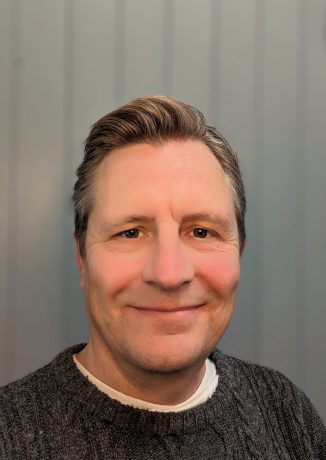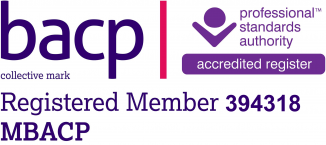ABOUT ME
I’ve always been drawn to helping people grow and navigate change. Much of my career was in the public sector supporting people through team development, coaching and training - I was also a wellbeing lead.
One moment that has stayed with me was when I supported a team of Registrars at a Local Authority. I was present when a man came in just days after his wife had died. Watching the Registrar support him with such compassion and respect was deeply moving. There was also something about being able to support someone in such a difficult moment that really resonated with me. Looking back, I think the seeds of wanting to become a counsellor were sown then.
I’ve also worked with a wide range of people since qualifying as a coach in 2012, helping them develop skills and achieve meaningful goals. Over time, I noticed that many of the issues people were bringing related to more personal challenges, such as a lack of confidence, and I found myself working with these more and more, rather than simply focusing on skills and goals. This made me realise I wanted to make a deeper, more personal impact—which led me to counselling.
I began my counselling studies in 2018 at the Iron Mill College in Exeter. Partway through, I experienced burnout—a wake-up call that made me reflect on what truly mattered. That experience reinforced my commitment to supporting others on a one-to-one level.
As a trainee at the Margaret Jackson Centre, Exeter, I worked with clients facing anxiety, depression, low self-esteem, childhood trauma, bereavement, anger, and relationship challenges. That experience has helped to shape the way I work today.
Now, as a practicing counsellor, I know that I made the right choice. Doing work that truly matters—being alongside people in their difficulty, just as that Registrar was—means a lot to me. It’s a privilege to create a space where people feel heard, supported, and able to explore their struggles at their own pace. Transitioning into full-time counselling has been both challenging and deeply rewarding, and I’m grateful to walk alongside people as they take steps toward positive change.
Professional Qualifications & Accreditations
Continuing Professional Development

MY APPROACH
I'm an integrative counsellor, which means I draw on a broad range of therapeutic approaches such as humanistic, mindfulness based cognitive therapy, Transactional Analysis, Existentialism, Solutions Focused Brief Therapy and contemporary attachment theory. In my experience, the most important thing is to build a safe, supportive and strong relationship between us both.
Here is the framework that I use, which will be tailored to suit your specific needs:
Exploration and connection
- Starting by getting to know each other and understanding the reasons you're here.
- Creating the conditions for you to feel safe, build trust and develop a strong therapeutic relationship.
- Exploring your personal history and experiences that have shaped you.
Addressing immediate challenges
- Focus on managing specific issues such as panic attacks, anger, or anxiety together.
- Help you to understand and navigate these difficulties.
Deepening understanding and empowering change
- Explore what is under the surface that is troubling you, for example, increasing awareness of patterns of thinking, feeling and behaving that may have served you well in the past, but are now problematic.
- Uncover personal values to guide decision-making and help you to identify achievable changes in line with those values.
- As therapy comes to an end, reflect on your progress, what are you taking away from our work together that can support your ongoing personal growth.
FREQUENTLY ASKED QUESTIONS
Counselling is usually a good way to help with a current problem; something that can be discussed and - hopefully - resolved within a limited number of sessions. Over a certain number of weeks the understanding of the problem improves and away forward becomes clear. Therapy often describes work that goes a bit deeper, towards more substantial life issues and problems having a deeper effect on the client’s life. Therapy often requires a long-term approach, so the number of sessions can be open-ended.
Which option is most suitable depends on the client and the difficulties they are facing. In some cases counselling works well as an ongoing, longer-term option - or therapy can manage to resolve an issue in just a few sessions.
How long a period of counselling lasts will vary from person to person and depend on the depth of the issues they are facing. For some people a couple of sessions helps to bring their problems into focus, and they feel ready to move forward; other problems may require more of an open-ended approach.
Before we begin any work we will agree on the number of sessions we’ll undertake before having a session to review our progress. As long as we both agree further therapy will be of benefit to you, sessions can continue.
Yes, I believe that everyone should have access to counselling, regardless of their financial situation.
That’s why I offer a limited number of low-cost spaces at a flat rate of £25 per session for those on low incomes. These low-cost sessions are available at my Teignmouth practice only. This is due to the lower overheads there, which allow me to offer counselling at a reduced rate.
How it works:
- Sessions cost £25 each.
- Before we begin, we'll have a free 30 minute consultation to see if I'm the right person to support you and that we're a good fit to work together.
- If no low cost spaces are available, I'll offer to put you on a waiting list.
- When you go ahead, you’ll need to commit to at least 6 weekly sessions, with a maximum of 20 sessions available.
- Your session will be reserved for you at the same time each week. I cannot offer sessions fortnightly, monthly or intermittently, and I cannot offer extended or repeated breaks.
I also offer concessions for students and those who have reached state pension age at £45 per session. This is available at both my Exeter and Teignmouth practices.
My aim is to offer a first appointment within 1-2 weeks. Then we would arrange a set number of counselling sessions to take place at the same time every week, that is convenient for you and where I have availability. How quickly these sessions can begin will depend on the availability of that free ‘slot’.
Everything that is said within the counselling room is private - this is one of the main ways counselling and therapy differ from talking to a friend or relative. Once you are comfortable with the format of weekly sessions and the safe space they provide, you will find the freedom to speak in confidence is of great value.
Note that there are some situations where you may be a risk to yourself or others, and there the law requires that I notify an authority; in these cases I may not be able to keep total confidentiality. Breaking confidentiality is very rare though, and only happens after the person concerned has been informed.
Usually I am asked this question by people who are nervous about entering into counselling, or when they are looking for support in coming to see a therapist. This anxiety is understandable, but a key aspect of therapy is that you should feel free to talk about any issues you feel are important to you. Having someone else with you who can be connected those issues makes this opening-up more difficult, so for this reason I do not see clients accompanied by friends or family.


